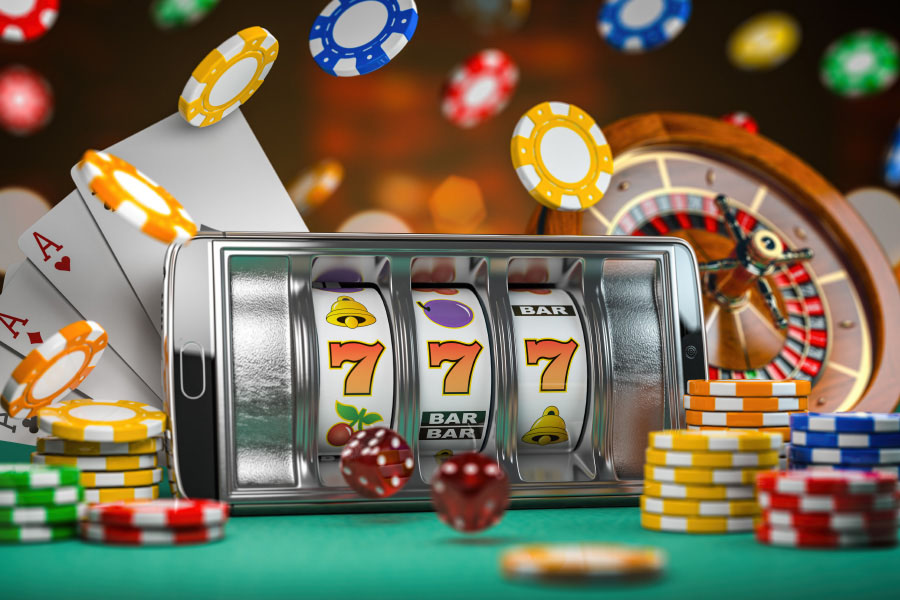
In the lively world of betting, gambling house activities have long enthralled the imagination of players around the globe. https://loto188pc.com/ These options, spanning timeless table options like Texas Hold’em to the rotating reels of fruit machines, offer an captivating mix of luck and strategy. While fortune undeniably plays a important role in determining outcomes, the role of skill in many gambling options cannot be ignored. Grasping how knowledge influences the experience can elevate not only a player’s enjoyment but also their odds of success.
As we delve deeper the inner workings of casino activities, it becomes apparent that some require a strong grounding of wisdom and strategy. Games like poker demand more than just chance; they require critical thinking, psychological insight, and tactical decision-making. In contrast, other activities, such as roulette and slots, are primarily based on chance, allowing gamblers to rely entirely on fortune. This distinction raises fascinating questions about what truly drives victory in the domain of gambling and how a gambler’s abilities can tilt the balance in their benefit.
Grasping Skill vs. Chance within Casino Activities
Within the realm of casino games, the debate between skill and luck is a long-standing one. Numerous games are often divided into two categories: those that depend predominantly on chance, such as slots and roulette, and those where skill plays a major role, like the game of poker and blackjack. The distinction is crucial because it affects not only gameplay strategies but also the approach players adopt when participating with these games. Although luck can play a critical role in the short term, skilled players can improve their odds of winning over the long run in skill-based games.
Skill-based games, especially poker, demand players to comprehend odds, human behavior, and game theory. A seasoned poker player can read rivals, make strategic bets, and understand when to fold, all of which can lead to more successful outcomes. Conversely, in games that are purely chance-driven, no amount of skill can alter the odds. This means that although a player may win big in one session, their victory may often be at the mercy to the vagaries of chance results rather than any strategic expertise.
Ultimately, both skill and luck coexist in the world of casino games, forming a vibrant environment for players. Although games of chance can provide excitement and instant gratification, proficiency and strategy in skill-based games offer a deeper level of engagement for those willing to dedicate time in refining their craft. This interplay between skill and luck defines the journeys of players and influences their connection with the games they select to play.
The Impact of Skill on Game Outcomes
In the field of gambling games, ability plays a significant role in determining the results, especially in games where strategy and decision-making are essential. For example, in poker, competitors must analyze opponents, calculate probabilities, and make calculated bets to enhance their chances of succeeding. Unlike games that rely purely on luck, such as slot machines or roulette, this game demands an understanding of both the rules and the psychology of other participants, making skill a critical component of success.
Additional skill-based activities, like blackjack, also underscore the significance of player skill. Knowledge of basic strategy, card counting, and when to hit or stand can significantly influence the casino advantage. A skilled blackjack player can reduce this edge and improve their odds of success significantly. This contrasts sharply with activities that do not permit for such tactical play, demonstrating how the level of skill influences the possibility for positive results.
Moreover, even within games considered primarily chance-driven, like craps, the decisions made by gamblers can influence their overall success. Choosing the optimal bets, understanding the likelihoods of different results, and managing one’s funds are essential factors that can enhance a player’s experience and results. Thus, while chance remains a factor in casino games, skill can significantly influence how efficiently participants navigate these environments, leading to more favorable results.
Strategies for Expert Play in Casinos
To succeed in casino games, players must develop a strong understanding of the rules and odds involved in each game. This foundational knowledge enables individuals to make wise choices, especially in skill-based games like Texas Hold’em and 21. Becoming acquainted oneself with game strategies, such as keeping track of cards in blackjack or recognizing betting patterns in poker, can significantly enhance a player’s chances of success. Practicing these strategies through practice games or lower-stakes games allows players to hone their skills without putting substantial amounts of cash at risk.
One more key approach is money management. Players should establish a spending limit before entering the gaming establishment and adhere to it strictly. This involves determining how much they are prepared to lose and imposing restrictions on how much they will wager in each session. By keeping a controlled approach to spending, players can maintain their play and reduce the chance of significant losses. Additionally, taking breaks can help maintain a clear mind and prevent impulsive decisions that often lead to poor play.
Ultimately, managing emotions is crucial in the intense environment of a casino. Players must be adept at controlling their emotions, particularly during periods of success or losing runs. Staying attentive and not allowing emotions influence gameplay can lead to more rational decisions. Methods such as taking deep breaths or walking away from the gaming table during intense moments can help maintain calmness. By cultivating a balanced state of mind, players can approach casino games with assurance and expertise, ultimately improving their complete gaming experience and outcomes.